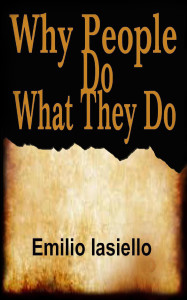What Are You Looking At?
Do good fences make good neighbors? Frost seemed to think so. And in some ways, he was right. Keeping a visible line between people creates boundaries. And boundaries keep people in check, establishing rules without ever having to say them.
But in some instances, neighborhoods who do not have fences and lawns run into one another in an endless spread of grass and trees. It’s great for kids wanting to play; bad for adults that wanted to mark their sanctuaries. It’s really a delicate balance and one whose fragility can be easily shattered at the most seemingly inconsequential act.
The neighborhood I’m addressing in the story is one that I lived in. A quiet idyllic community set on two cul-de-sacs with ten houses containing families and children of all ages. The community was known to throw joint seasonal parties: block parties in the spring, joint barbecues in the summer time and winter fests during the cold month of December. It was close knit and safe. It was not uncommon for kids to be unsupervised all night playing kick-the-can, red-rover, dodge ball and every other game popular at the time. Once the street lamps came on, children under the age of ten ran to their homes.
There was an incident during one of the winter parties over the suspected theft of some knick-knack from a house by a neighbor…then the idyllic neighborhood took on an ugly atmosphere. Sides were taken. Insults were made. Some children were not allowed to play with their friends.
And then it was soon discovered that a mistake had been made.
It’s difficult to mend friendships when trust has been exposed and broken. And so was the case then. An uneasy tension became a permanent fixture in a place that was anything but tense. The block parties quickly disappeared. There were no more collaborative winter parties; the houses preferring to host their own gatherings, fully in charge of who was invited and who clearly was not.
What intrigued me was, if two spouses were the catalysts of the events that unfolded, what would the relationship be like between the other two, especially if they had been best of friends? How does one address the spouse that was clearly wrong, and how does that person move forward?
Is there a chance of redemption? Of forgiveness?
Is there any conceivable way of coming back from that brink?
Taken from Why People Do What They Do by Emilio Iasiello
Published by Deer Hawk Publishing www.deerhawkpublications.com
Represented by Loiacono Literary Agency https://loiaconoliteraryagency.com/authors/emilio-iasiello/
